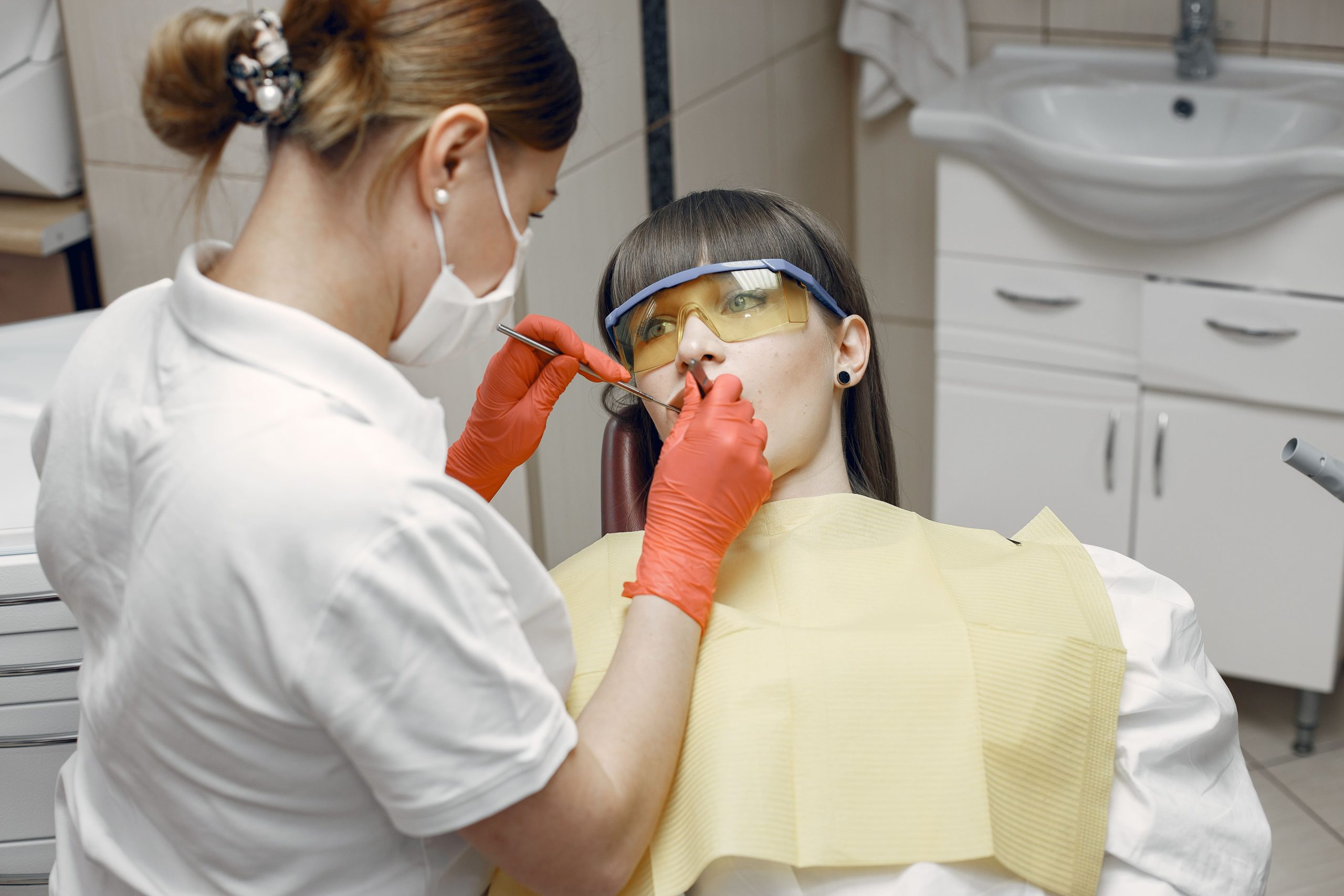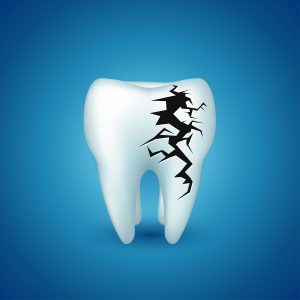
Home » Cracked Tooth Emergency Cheadle
No matter what caused it, if you suffer from cracked tooth/teeth, you are probably experiencing pain when you are eating/chewing food.  You feel similar when you expose your teeth to very cold or very hot beverages/food. If you suspect you might have cracked tooth/teeth, we recommend visiting Cheadle dentists endodontists, which are specialised in saving cracked teeth.
You feel similar when you expose your teeth to very cold or very hot beverages/food. If you suspect you might have cracked tooth/teeth, we recommend visiting Cheadle dentists endodontists, which are specialised in saving cracked teeth.
The patient feels pain in the cracked tooth because hard tissues on the outer side of the tooth got damaged. On the inside, there’s a soft tissue named the pulp which is crisscrossed with blood vessels and nerves. The pulp is covered with white enamel and a hard layer (the dentin). In the case of cracked tooth/teeth, the pulp gets very sensitive because tiny little pieces get moved when the patient is chewing. If proper help/healing is not given, the damage gets big enough so the pulp is unable to heal itself. As time progresses, the tooth hurts by itself, regardless of chewing and using hot/cold foods and drinks. If even at such a stage endodontist help is not given, the infection of pulp tissue can damage the gum and bone around the cracked tooth.
Treatment of cracked teeth depends on what type the crack actually is. There are several main types: fractured cusp, treatable cracked tooth, split tooth and vertical root fracture type. Dental Emergency Cheadle experts will take care of the pain first. They will closely examine and take measures to prevent the crack not to getting worse. Although the fracture in a cracked tooth in many cases cannot be healed completely, most cracked teeth are fully functional and provide years of comfortable grinding once they are treated by skilful endodontists.
Our services are available from 9:00 AM to 5:00 PM on weekdays, with appointment-only treatments on Saturdays. We are closed on Sundays. After 6:00 PM, you can still reach us on 0161 428 2355 for urgent inquiries. Contact us to book an appointment!
Routine and emergency appointments available at Dental Emergency Cheadle.
Call Us: 0161 768 2028 or click on the link below

Call the dental emergency helpline or out-of-hours call on 0161 768 2026

Our highly trained operator will answer your call, take your details and book an appointment

You will be then asked to pay a small emergency call out charge using a credit or debit card.

Yes. Even a small crack can allow bacteria to get inside the tooth, which can lead to infection, nerve damage or even tooth loss. If you see a crack, particularly if you have pain or swelling, you should call an emergency dentist as soon as possible.
Rinse your mouth gently with warm water to keep the area clean. Apply a cold compress to the cheek to minimise swelling. If there is pain, take an over-the-counter pain reliever. Avoid chewing on the affected side, and contact an emergency dentist as soon as possible.
The pain is usually triggered when the crack exposes the inner layers of the tooth, including the nerves. Biting down, temperature changes, or chewing can cause sharp pain. If the crack extends to the pulp, infection may occur, increasing the pain.
No. Teeth cannot repair themselves like bones. A dentist must fix the crack with a filling, bonding, crown, or sometimes a root canal to prevent further damage.
Treatment depends on the severity:
You should avoid chewing on the side of your mouth that has the cracked tooth. Try to eat soft foods until you can get to a dentist. Avoid hard, sticky, or crunchy foods as they can further crack the tooth or break it entirely.
If your cracked tooth comes with severe swelling, uncontrolled bleeding, fever, or trauma to your jaw or face, go to the AE. Otherwise, an emergency dentist is the best choice for immediate treatment.
Ignoring it can lead to infection, severe pain, and eventually tooth loss. The crack will continue to get worse over time in nearly all cases, so early treatment is important to save the tooth.